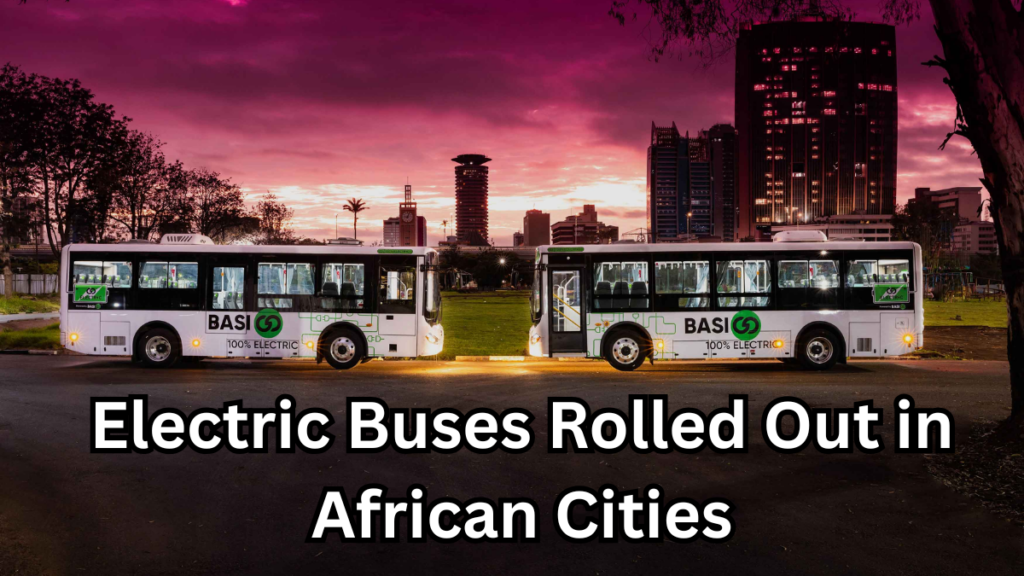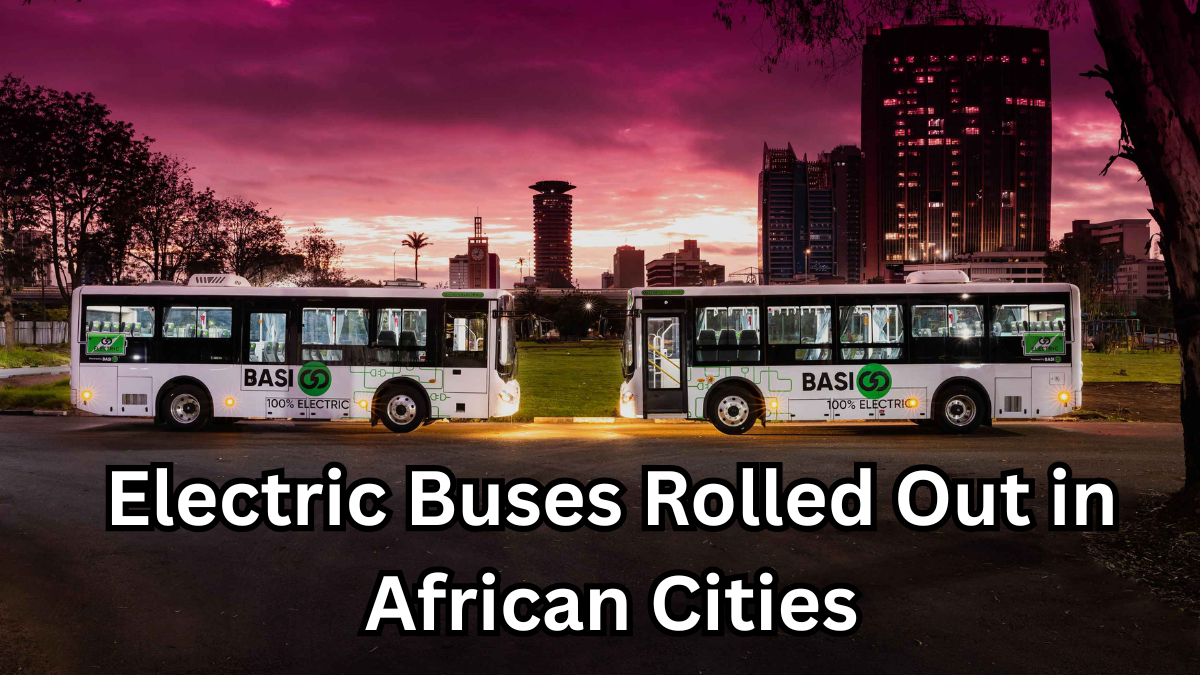The winds of change are sweeping across African cities, and they are greener than ever. With the Electric Bus Launch Africa movement gaining momentum, several African cities have officially introduced electric buses into their public transport networks. This shift marks a significant step toward sustainable urban mobility and cleaner air.

Why the Electric Bus Launch Matters for Africa
The Electric Bus Launch Africa initiative is more than just an upgrade in city transportation; it’s a commitment to reducing pollution and enhancing everyday life.
Key Benefits of Electric Buses in Africa
-
Zero Emissions: Helps fight urban air pollution.
-
Cost-Effective: Reduces fuel costs over time.
-
Quiet Operations: Makes public transport more peaceful and enjoyable.
-
Job Creation: Boosts local economies through manufacturing and maintenance roles.
-
Reduced Dependence on Fuel Imports: Supports energy independence.
Cities Leading the Electric Bus Launch Africa Movement
Several African cities are taking bold steps in modernizing their public transport systems with electric buses.
| City | Electric Bus Fleet Size | Launch Year | Key Benefit |
|---|---|---|---|
| Nairobi, Kenya | 20+ | 2025 | Cleaner air, quieter streets |
| Lagos, Nigeria | 50+ | 2025 | Reduced traffic emissions |
| Kigali, Rwanda | 80+ | 2024 | Cost-efficient transit |
| Cape Town, South Africa | 100+ | 2024 | Improved passenger comfort |
How Electric Buses Improve Public Transport
The introduction of electric buses is transforming public transport in several ways:
Key Improvements
-
Smoother Commutes: Electric buses offer quiet, smooth rides with fewer vibrations.
-
Lower Fares: Reduced operational costs may lead to more affordable ticket prices.
-
Reliable Schedules: Electric buses require less maintenance, minimizing service delays.
-
Enhanced Accessibility: New buses are designed with ramps and low floors for easy boarding.
Challenges in Rolling Out Electric Buses
While the Electric Bus Launch Africa project is promising, it’s not without hurdles.
Major Challenges
-
Charging Infrastructure: Many cities need more charging stations.
-
High Upfront Costs: Electric buses are expensive to purchase, though cheaper to operate long-term.
-
Driver Training: Transitioning to electric buses requires new skills for drivers and technicians.
Government and Private Sector Collaboration
African governments, in partnership with private investors, are actively working to overcome these barriers.
Ongoing Efforts
-
Incentives for Green Vehicles: Some governments offer tax breaks for electric bus imports.
-
Investment in Charging Stations: Public-private partnerships are building a charging network to support the fleet.
-
Training Programs: Workshops and courses are being introduced to upskill drivers and maintenance staff.
The Road Ahead for Public Transport in Africa
The Electric Bus Launch Africa is setting the foundation for a cleaner, more efficient future. As more cities embrace electric mobility, public transport will become greener, smarter, and more inclusive.
FAQs
1. Which African cities have started using electric buses?
Nairobi, Lagos, Kigali, and Cape Town are among the first to roll out electric buses as part of the Electric Bus Launch Africa initiative.
2. How do electric buses benefit public transport in Africa?
Electric buses make public transport more affordable, eco-friendly, and reliable while reducing noise and air pollution.
3. What are the challenges of the Electric Bus Launch Africa project?
Key challenges include high initial costs, lack of charging infrastructure, and the need for driver and technician training.
4. Are governments supporting electric public transport in Africa?
Yes, many African governments are offering tax benefits, building charging stations, and collaborating with private companies to support the Electric Bus Launch Africa.
Click here to learn more
Sachin is a dedicated writer specializing in education, career, and recruitment topics, delivering clear and actionable insights to empower readers.
